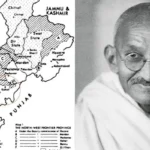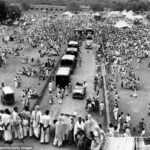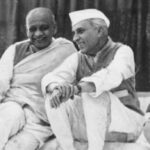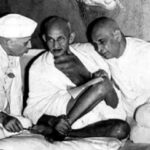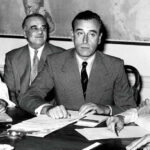Mahatma Gandhi was one of the most influential leaders of the Indian independence movement and a staunch advocate of non-violence and communal harmony. However, his role in the partition of India in 1947 is a subject of debate and controversy among historians and scholars. Some of the main points of view are:
- Gandhi was opposed to the partition of India and tried his best to prevent it. He believed that India was a nation of diverse religions and cultures that could coexist peacefully. He rejected the two-nation theory of the Muslim League, which claimed that Hindus and Muslims were separate nations that could not live together. He also appealed to the British government and the last viceroy, Lord Mountbatten, to delay or reconsider the decision to divide India. He even offered to let Muhammad Ali Jinnah, the leader of the Muslim League, become the prime minister of a united India, but Jinnah refused.
- Gandhi was partially responsible for the partition of India because he failed to address the grievances and aspirations of the Muslim minority. He did not recognize the extent of Muslim alienation and resentment towards the Hindu majority, which was fueled by the British policy of divide and rule. He also did not give enough support to the moderate Muslim leaders who wanted to cooperate with the Congress party and work for a federal and democratic India. He alienated Jinnah, who was once a close ally of Gandhi, by favoring Jawaharlal Nehru and other Hindu leaders in the Congress. He also ignored the advice of some of his colleagues, such as Rajendra Prasad and Vallabhbhai Patel, who warned him about the dangers of partition.
- Gandhi accepted partition as a last resort to avoid civil war and violence in India. He realized that the demand for Pakistan had gained popular support among Muslims and that Jinnah was determined to achieve it by any means. He also saw that the British government was eager to quit India as soon as possible and that they had no interest in preserving the unity of India. He feared that if partition was not accepted, there would be a bloody conflict between Hindus and Muslims that would destroy the freedom and democracy that he had fought for. He hoped that partition would be temporary and that India and Pakistan would eventually reunite as friendly neighbors.
These are some of the different perspectives on Gandhi’s role in partition. There is no definitive answer to this question, as it involves complex and contested historical factors and interpretations. However, one thing is clear: Gandhi was deeply saddened and pained by the partition of India and its aftermath. He spent his last days trying to heal the wounds of partition and promote peace and reconciliation between India and Pakistan. He was assassinated on January 30, 1948 by a Hindu fanatic who blamed him for partition.
If you are interested in learning more about this topic, you can read some of these articles:
- Gandhi’s Role in the Partition of India by Mohammed Ayoob
- Gandhi and his Critics by B.R. Nanda
- Why did Gandhi accept partition? by Ramachandra Guha
- Role of Gandhi, Nehru, Jinnah and British in partition of India by IAS Today
- Revisiting Partition: Gandhi’s Role in Integrating the Northeast with Independent India by Sanjoy Hazarika
I hope you found this answer informative and helpful. Thank you for reading! 😊

